Hudson Fryer Oil Recycling Made Simple
Hudson County houses some 1,886 food and beverage venues more per square mile than any other New Jersey county. Dense dining plus aging sewers make fats, oils & grease (FOG) the county’s top cause of blockages, notes the North Hudson Sewerage Authority. Proper used cooking oil pick up keeps fryers running, prevents $10,000 plus overflow fines, and supports low carbon biofuels that slash lifecycle emissions by up to 80 percent, according to Grease Connections.
Get Paid Automatically
Schedule free used cooking oil disposal services; enter your information below and we will reach out to you.



★★★★★
Rated 5 Stars on Google






Full Service Used Cooking Oil Pick Up
We collect grease on a custom schedule daily, weekly, or on demand using sealed vacuum trucks that meet NJDEP transporter licensing rules, according to the agency’s Used Oil Regulations. Drivers scan RFID tags on every container, instantly emailing a digital manifest to satisfy the county FOG permit. Live route optimization reduces idling and lowers neighborhood noise.
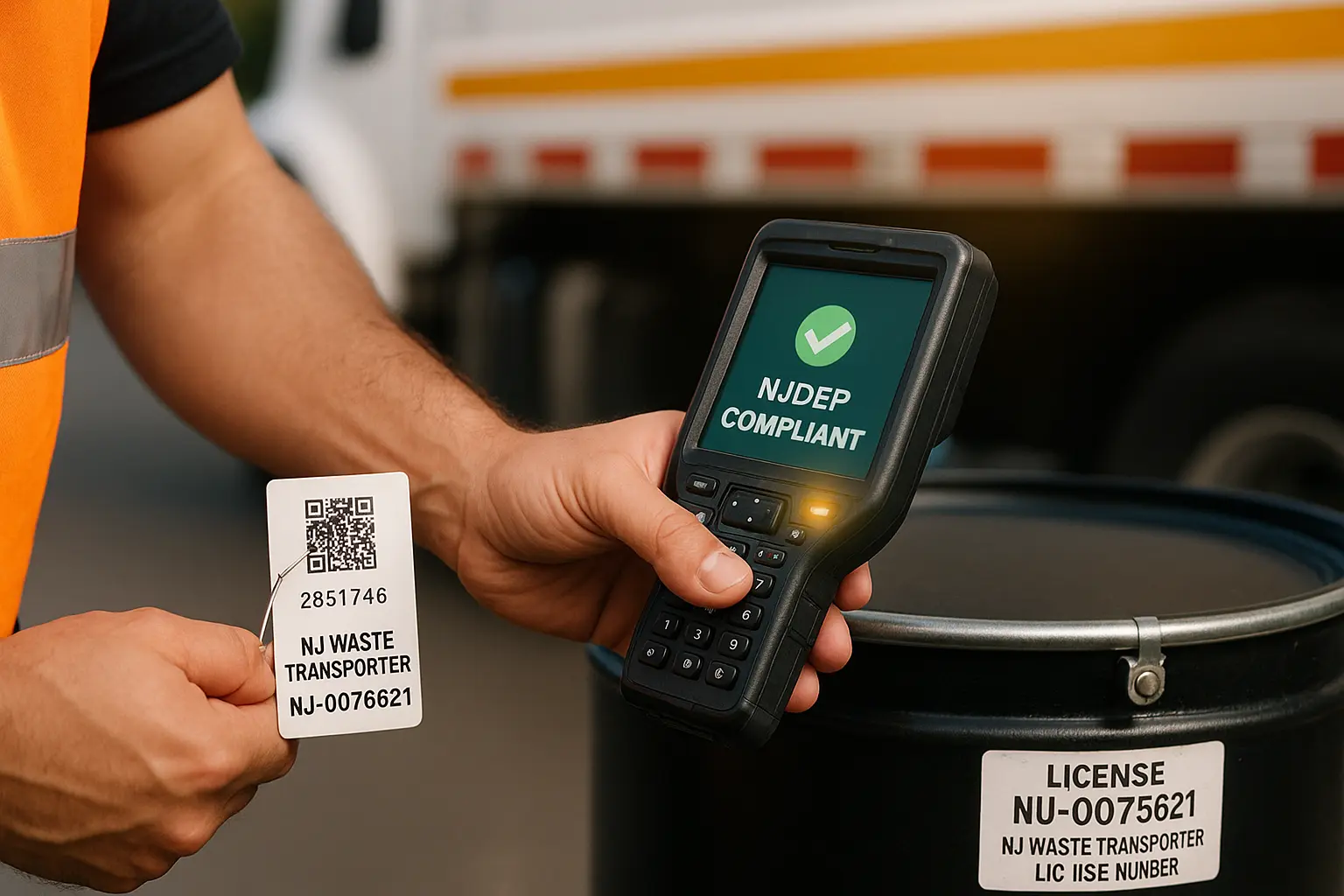
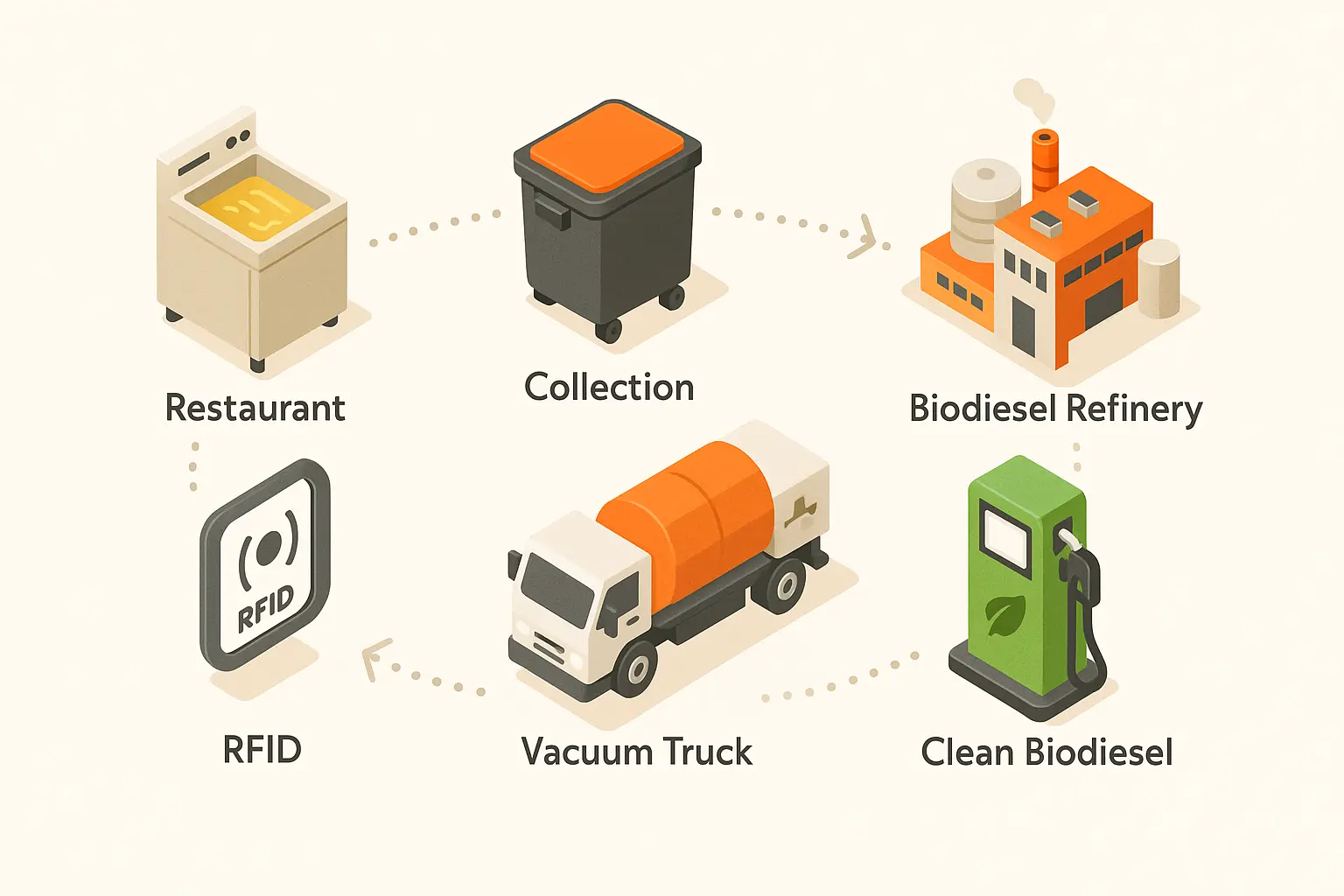
Transparent Grease Disposal Process
Collected oil travels directly to our Newark transfer hub before refinement into biodiesel and sustainable aviation fuel. Used cooking oil is now a prized feedstock in the federal Renewable Fuel Standard, notes the U.S. EPA. Each client portal shows net gallons, carbon offset equivalents, and current commodity rebates protecting kitchens from black market grease theft that plagues New Jersey, according to Grease Connections.
Local Regulations & Compliance
Hudson eateries must install interceptors and maintain haul records under municipal codes in West New York and Union City. NJDEP classifies UCO as a special waste subject to RCRA tracking; failure to recycle can trigger hazardous waste citations. Our manifests sync automatically with the North Hudson Sewerage Authority’s 2025 FOG portal, ensuring “zero paper” audits.
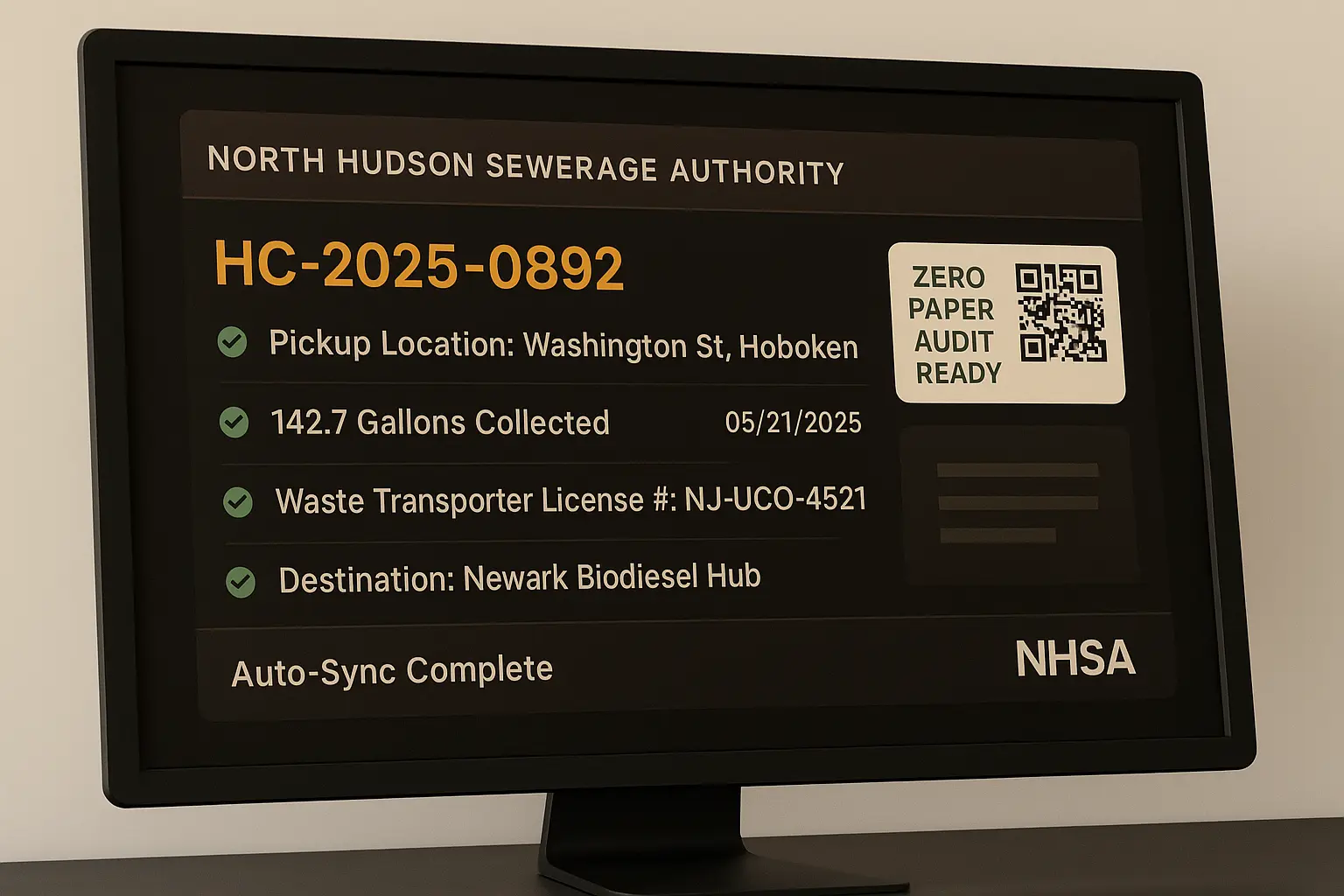
Smart Containers & On Site Equipment
| Container | Capacity | Best For | Mobility | Theft Deterrent |
|---|---|---|---|---|
| Black drum | 55 gal | Low volume cafés | Manual dolly | Lock ring |
| Square caddy | 70 gal | Food trucks | Built in wheels | Padlock lid |
| Rectangular tank | 140 gal | Mid size bistros | Fork pockets | RFID seal |
| Large tank | 300 gal | High volume fry houses | Casters | Steel cage |
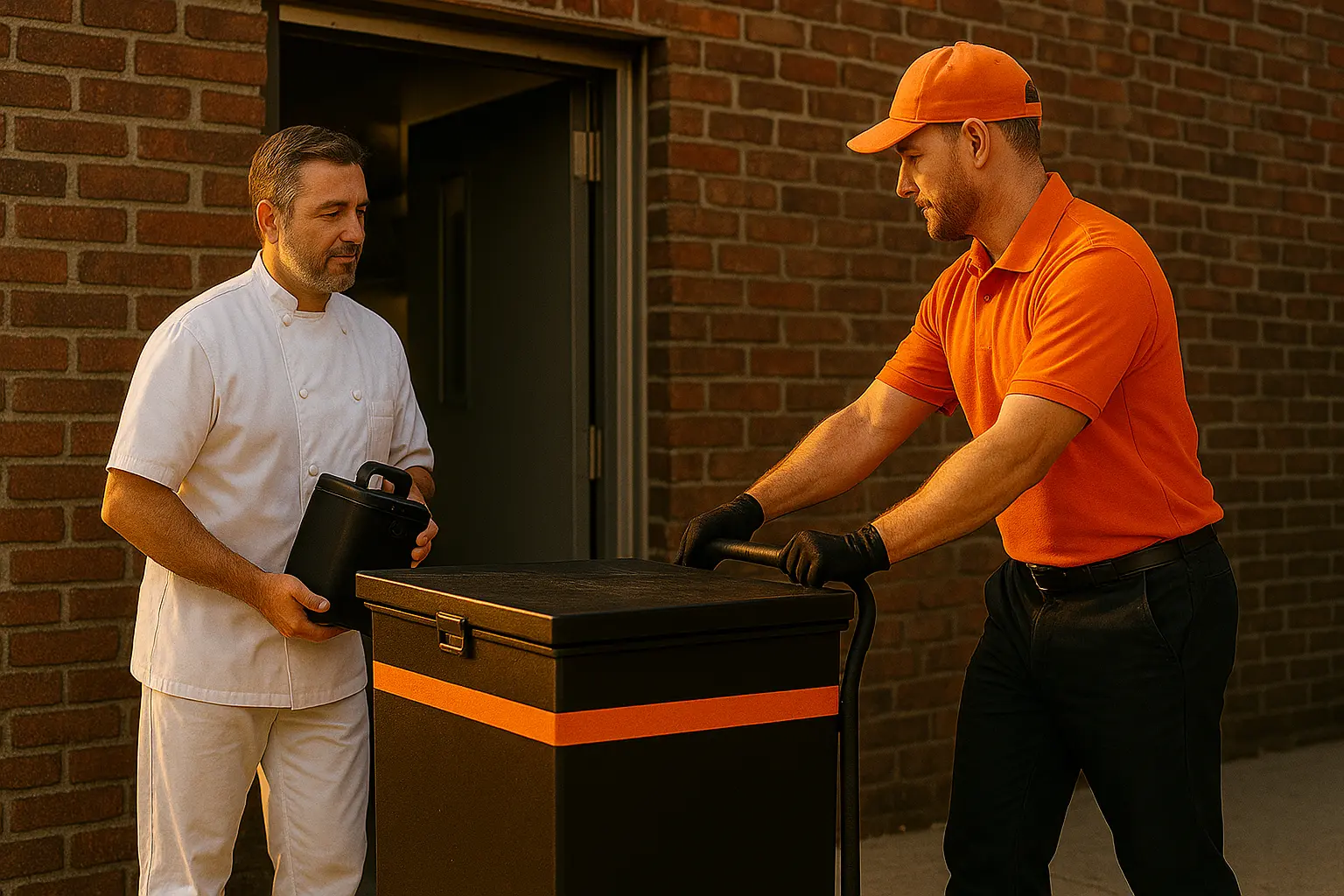
Service Schedule & Coverage Map
We cover every Hudson municipality Jersey City, Hoboken, Bayonne, Kearny, Secaucus, Weehawken, Guttenberg, West New York, Union City, North Bergen, Harrison, and East New ark on fixed routes that intersect major arteries and the New Jersey Turnpike. Visithudson.org highlights the county’s diverse culinary corridors, all within a 15 minute haul of our depot. A dynamic map on this page auto updates ETAs.

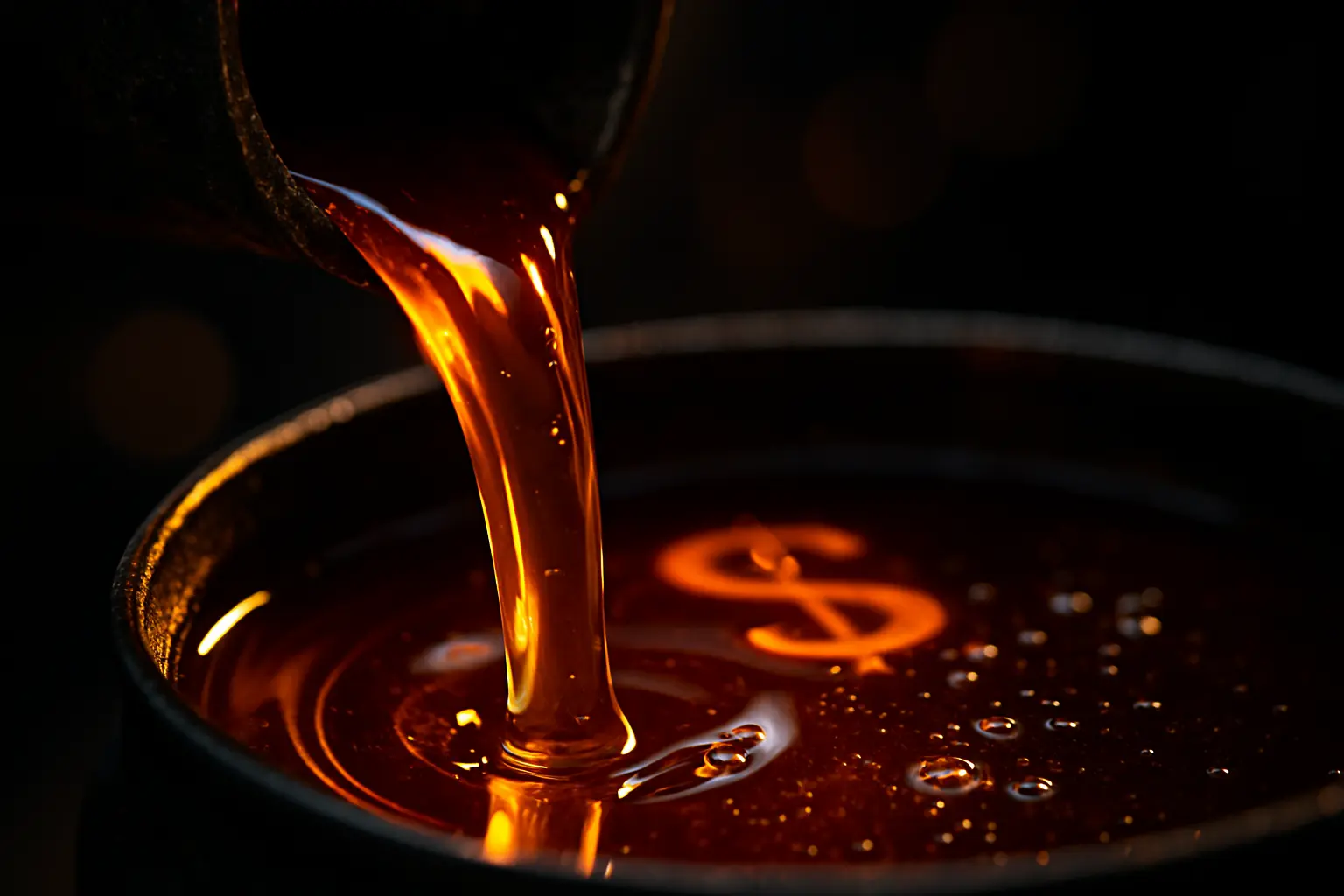
Pricing & Rebates
| Plan | Oil Volume (gal/mo) | Pick Up Frequency | Per Gallon Credit* | Extras |
|---|---|---|---|---|
| Standard | <200 | On call | $0.10 | 24 hr spill line |
| Plus | 200–600 | Weekly | $0.20 | Grease trap report |
| Premium | >600 | Daily | $0.50+ | Remote tank sensor & fryer to tank pump |
Circular Economy & Biodiesel Impact
Recycled Hudson grease feeds Northeast biodiesel plants that cut greenhouse gas emissions up to 78 percent versus diesel, the Alternative Fuels Data Center reports. Hudson’s output alone can power 1,500 passenger cars for a year, according to EPA yield tables. Farmers also rely on UCO to compete with cheaper imports, a trend outlined by the Financial Times.
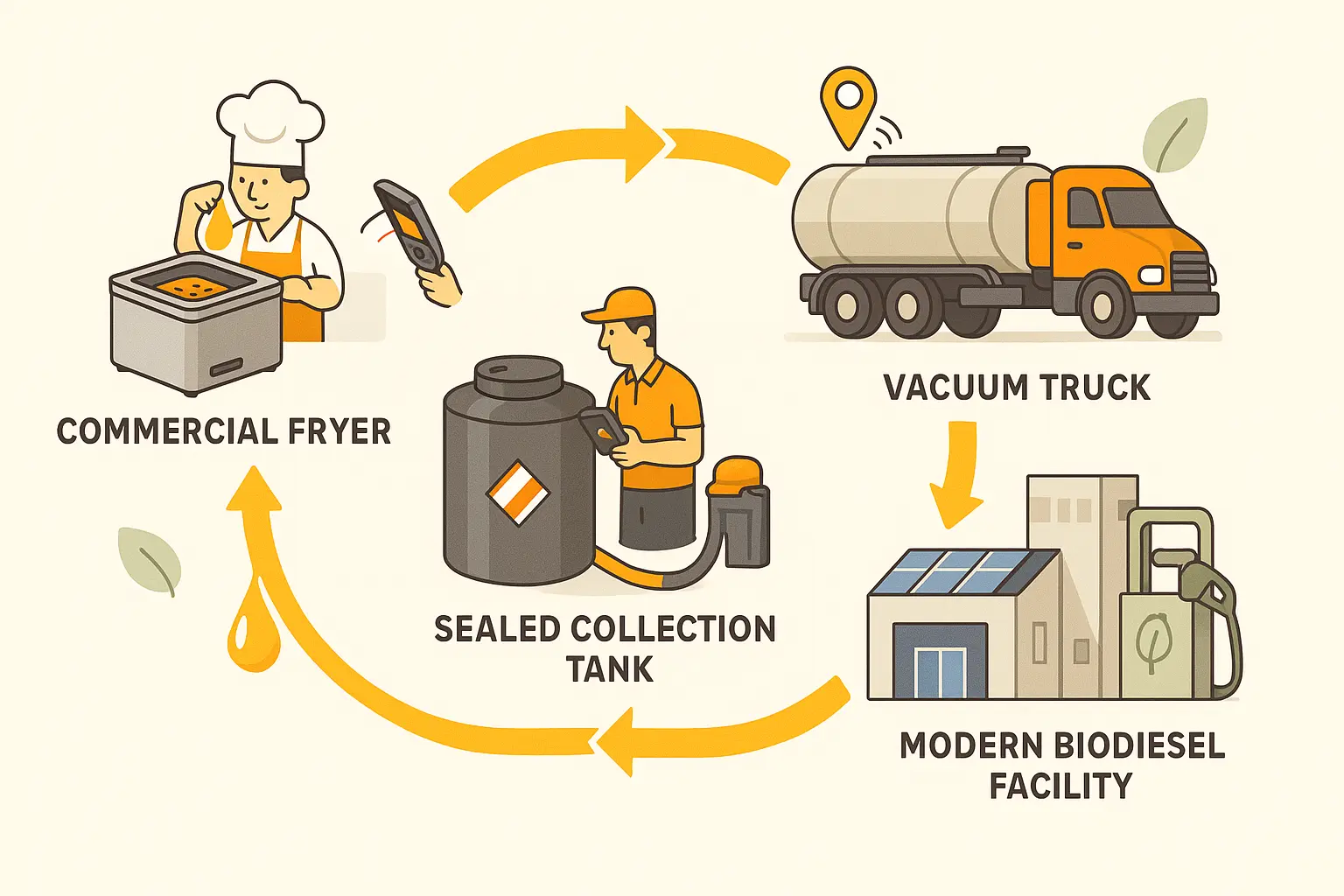
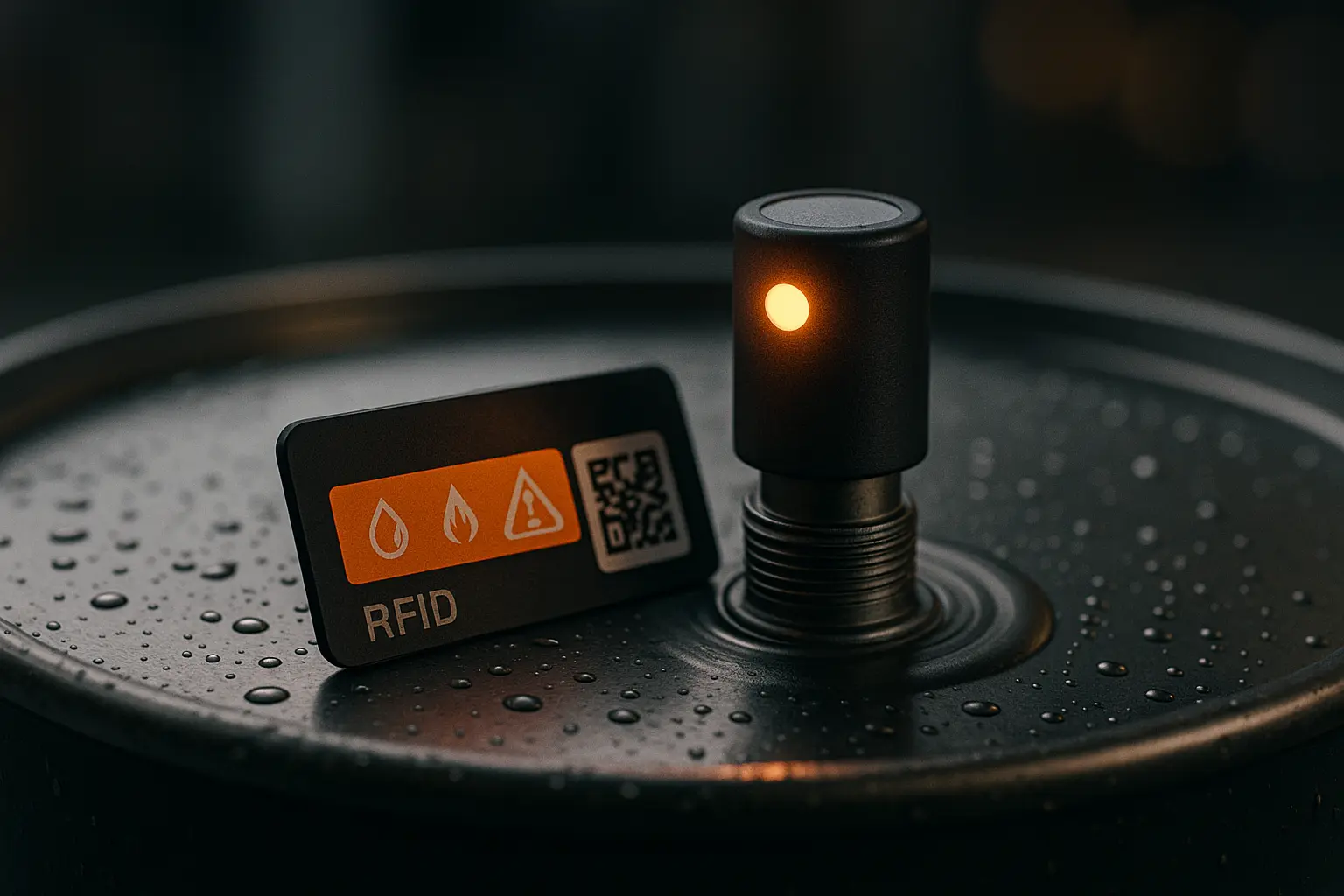
Security & Theft Prevention
Grease is “liquid gold” worth $75 million a year nationwide, driving night time siphoning rings. Union police logs confirm regional arrests for Hudson River valley heists. Our lockable tanks, motion alerts, and license plate scanning drivers cut theft incidents by 98 percent. Clients receive incident flag SMS within 60 seconds deterring losses.
Getting Started Today
Book service in three clicks: enter address, choose container, schedule pick up. Confirmation includes the NHSA FOG permit link for restaurants opening after July 2022. Our onboarding crew swaps containers during off hours and trains staff in best handling practices laid out by EPA’s FOG guidance.



★★★★★
Rated 5 Stars on Google
